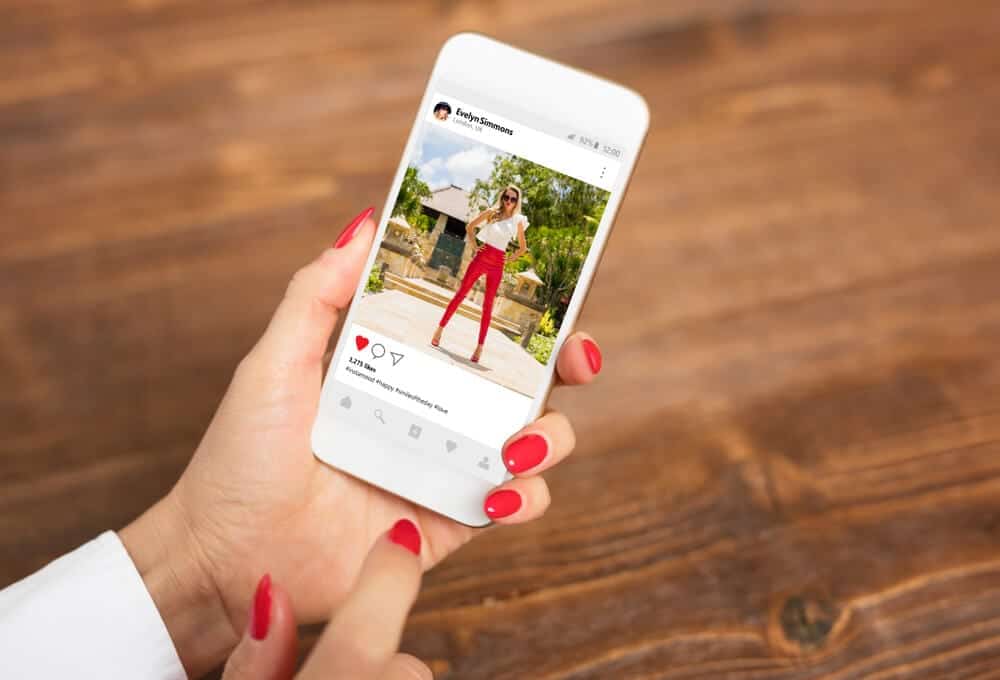
Social media seems to have pervaded through every element of our lives. Facebook, Pinterest, Twitter… we’re all addicted to feeds whether from friends and family or from influencers. As the number of these feeds depicting exotic vacations, picture-perfect moments and filtered images of slim and beautiful increase models, our self-confidence decreases, and our mental health appears to be worsening. Is there a connection?
A recent survey suggests that there certainly is. The moments that are captured on social media platforms rarely match with our own humdrum, everyday lives and the discontent that this disconnect is causing is resulting in a raft of mental health issues like depression, insomnia, body-image disorders, and anxiety. This is especially the case in young adults who use social media platforms most heavily.
Of all the social media platforms out there, it is Instagram that has been said to have the worst effect on mental health. With more than 700 million users around the world to date, this social network appears to be having a major negative impact on the body positivity of young people, seriously affecting their health and well-being, preventing them from connecting with their local community and even disturbing their own sense of identity. So, why is Instagram such a negative influence on teenagers?
An Unrealistic Comparison
Although most social networks have been demonstrated to have a negative effect on mental health, Instagram is, far and away, the worst. One of the reasons behind this is believed to be that girls tend to compare themselves unfavorably with the unrealistic images they see on Instagram that have clearly been filtered and manipulated to create something totally unachievable in the real world. It’s all too easy for Instagram to make women and girls feel as though their bodies simply aren’t good enough since filters are added to images and pictures are edited to create the perfect look.
The Fear Of Missing Out
Research has already proved that FOMO is created by social feeds. Fear Of Missing Out and unrealistic expectations pair together to reduce self-esteem while also fueling issues like depression and anxiety which are already so common among young people today. Why do so many people develop FOMO when browsing through social media feeds on Instagram? It isn’t too difficult to determine the answer to this.
A quick browse will reveal countless images of parties, vacations, loving relationships and beautiful moments all presented in crystal clear detail. For anyone whose reality consists more of homework, arguments with family members and an unsatisfactory love life, it’s not too surprising that Instagram makes young adults feel as if they are missing out. Even grown men and women can develop FOMO when they see the lifestyles that others seem to enjoy and compare them with their own rather dull existence.
It isn’t too much of a jump to recognize that Fear Of Missing Out can lead to mental health disorders. It’s only natural to ask “If other people can achieve such happiness, why can’t I? What’s wrong with me?” Questions like that can only lead to unhappiness, poor self-esteem and even increased isolation.
Cyber-Bullying – An Unwanted Side-Effect
It isn’t just FOMO that young people need to worry about when it comes to the effect of Instagram on their mental health. Cyber-bullying has turned out to be another unwanted side-effect of the social media obsession.
Anyone whose lifestyle or images doesn’t fit the mold is often seen as a target for criticism and ridicule. For young people who are especially vulnerable to this kind of behavior, social media platforms present a no-win situation. To avoid social media is to potentially invite ridicule for being out-of-touch or “uncool”. Meanwhile, to actively participate is to leave oneself open to being made fun of or even to outright bullying. The online, always-accessible nature of this bullying means that there is, quite literally, no escape for victims. Whereas in the past, victims of bullying could feel safe at home in their own bedroom, today the bullies have followed them home in a virtual capacity and can make them feel bad anywhere at any time. Is it any wonder that so many young people report increasing mental health issues and even suicidal thoughts?
The Impact Of Sleep Deprivation on Mental Health
Instagram and its fellow social media platforms are also having an unexpected impact on mental health in the context of sleep deprivation. A fifth of young adults reports waking up during the night in order to check their messages and then experience exhaustion in the daytime. A lack of sleep has long been associated with poor mental health, and when paired with the other issues that Instagram causes, it’s easy to see how anxiety and depression can be a major issue.
An Inability To Communicate And Connect With Real People
While all the social media networks scored well in helping young people to create and maintain connections with others, there is a caveat to this. Those connections are forged in the virtual world. The more time we spend looking at screens, the more we become acquainted with friends’ digital lives rather than their own real-life personas. This makes it more difficult to relate to those people on a face-to-face level. As a result, social isolation can follow which leads to poor mental health.
Distorted Memories
Social media platforms allow us to look back at our memories of past events and relive those special moments, however, there’s also a danger that those memories may become distorted. Many people are now guilty of spending longer on taking the perfect photo of a moment than actually living in it, and that means that we often fail to absorb the experience first hand of witnessing the moment ourselves.
Directing all your attention towards capturing the perfect shot for social media followers to like and admire means that you can’t truly enjoy an experience in real-time while spending time uploading those images on your smartphone will only serve to detract from the most important aspects of an event or experience, undermining any happiness that could be gleaned from it. How many times have we seen someone filming fireworks rather than watching them, or capture a concert through the lens of their phone’s camera rather than really listening to it and enjoying the thrill of being there? Missing out on those key experiences robs our lives of joy and exacerbates feelings of anxiety and depression that already exist.
Reduced Attention Span
Spending excessive amounts of time on social media networks can directly affect the ability of your brain to concentrate fully. Social media may present a vast amount of information and put it within easy reach but it also allows people to become distracted more easily than ever before. Social media platforms like Instagram have supplied a means whereby we can constantly give in to the temptation of easy-to-access, instant entertainment. There are now many young adults who seem to be physically incapable of putting their phone down for more than five minutes at a time and who become anxious if they’re unable to check on their status and to see how many messages or likes their latest post has received.
Who Is Most At Risk Of Poor Mental Health Triggered By Social Media Usage?
Studies have shown that those young adults who spend over two hours daily browsing social networking platforms have the greatest chance of reporting psychological distress. Spending hours on end trawling through images of other people enjoying vacations, parties and nights out makes these young people feel as if they’re missing out on the good things in life. Research has also revealed that young adults who use several social networks are more likely to suffer from anxiety and depression than those who just use one or two. Navigating between the different friend networks and social norms on the varying platforms may be to blame for this.
Is It All Bad?
Although Instagram has been revealed to be the most negative of all the social media platforms, all of the other major players including Twitter, Snapchat and Facebook were shown to have a negative impact on mental health. Yet it isn’t all bad. Close to 70% of survey respondents revealed that they found emotional support from social media in tough times, with many saying their accounts were actually a forum where they could express themselves in a positive way and where they could maintain and create positive online relationships. All the social networking sites received a positive score for self-expression, self-identity and community building and YouTube was revealed to actually have a positive effect on viewers’ mental health, receiving the highest overall scores for well-being and health. Users reported that YouTube was instrumental in improving awareness of the health experiences of others, for providing excellent access to reliable health information and also for reducing the survey respondents’ level of anxiety, loneliness, and depression.
Is Quitting Social Media The Answer?
It may sound as if quitting all social media is the only way to go if we’re to preserve the mental health of the next generation. However, this may not necessarily be the case. After all, as we’ve just seen above, YouTube achieved a high score for mental health benefits.
Perhaps a better idea, rather than coming off all social media platforms cold turkey, would be to exercise some willpower from time to time. Taking a short break of even a few hours away from Instagram, Facebook, Snapchat and Twitter could be very beneficial in helping young adults to connect with the real world around them and to see the reality of situations without looking at them through filtered images and a camera lens. Although it may seem impossible for any teenager to just put their phone down for a day (or even an hour), practice makes perfect. They will soon find that they get a clearer head and achieve a more objective viewpoint when browsing Instagram and looking at the supposedly perfect lives of other people.
Can The Situation Be Reversed?
The primary issue that Instagram and other social media platforms raise is that users tend to forget that the things they are seeing aren’t always real. As a result of the survey, we, therefore, see certain recommendations being made in an attempt to improve the situation and to make young people more confident and less anxious.
Firstly, it has been suggested that celebrities, influencers, and fashion brands should disclose if their photographs and images have undergone manipulation. Secondly, it has been suggested that social network platforms give users pop-up warnings should they spend longer than a specified period logged into their account. It may even be possible for social platforms to identify users experiencing mental health issues based on their usage and then send discreet messages about where they may be able to source help and support.
More research should be carried out into the health impacts of social media. Its widespread usage amongst the younger generation is showing no signs of abating and is actually growing with time. The health implications should, therefore, be considered seriously to avoid even more serious problems arising in the future.
There have also been calls on the government to help, with requests for lessons about how to use social media platforms safely taught in schools. It has also been suggested that professionals working with young people should have training in social media and digital platforms so that they can offer knowledgeable support to teenagers and younger adults in need.

It’s clear that Instagram and its fellow social media platforms are, at the moment, having more of a negative impact on mental health than a positive way. However, since social media is unlikely to be going anywhere soon a way forward has to be found to overcome this problem. The future will hold new innovations and advances, and we need to be ready to embrace them and to find new ways of using social networking platforms in ways that promote and protect well-being and health rather than destroying them.
Here at The Meadowglade, our trained practitioners can help you set goals for your social media use, unpack your dependence on social media and work towards better mental health little by little for a healthier, happier you in the new year.
Contact us today to learn more about how we can help you move along on the path to mental wellness!
